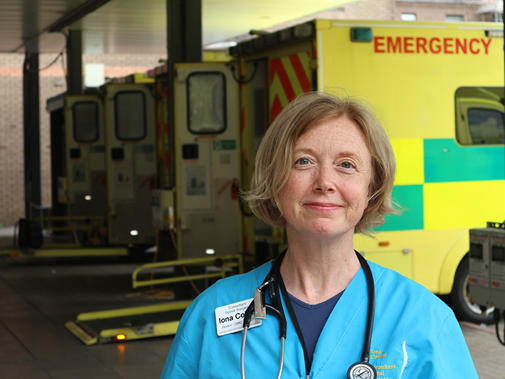Our National Health Service is not meeting patients’ needs because waiting times for diagnosis and treatment are too long.
This supply and demand mismatch can be partly explained by the record number of doctor vacancies in our NHS. The NHS is an increasingly unattractive employer. When doctors work in the NHS, they risk burning out.
While trainees in the UK have no option but to remain in the NHS until being fully autonomous, other doctors who are able to work outside the NHS are increasingly doing so.
They cite pay and working conditions as the reasons for leaving. The UK has become increasingly reliant on doctors from middle-income countries migrating to work in the NHS, with more than a third of NHS doctors having trained overseas, yet even with such heavy reliance on international graduates, we continue to experience increasing numbers of job vacancies within the medical profession.
Is it any wonder that the waiting-list backlog is ever-increasing? The sad outcome is the association between increasing waiting times and decreasing survival figures, with data showing the UK does not fare well compared with other high-income countries.
Our NHS has lost its way. As clinicians, we are in the thick of it and we have a channel to voice our concerns and solutions. The channel is our British Medical Association.
The BMA is our professional body which represents us collectively as doctors, but which also protects us individually as our trade union. The BMA is for all doctors working in the UK and we all need to gain membership, so that we can come together as a profession and collectively lobby for and implement effective improvements in our NHS.
We can speak openly and freely in the BMA, without fear of negativity or whistleblowing accusations. We can candidly capture and report the reality of the NHS’s situation, rather than be misrepresented by over-generalised information provided by others.
Here in Wales, we’ve launched the NHS pressures portal, which enables members to log as many constraints and suggestions as we like. We’re hopeful that this data will enable us to shape the agenda.
We need your examples, your experiences and your membership to strengthen our position. Most importantly for you individually though, is that when you are a BMA member, the BMA has got your back. I know from first-hand experience that being a BMA member is in my own best interest but also in the best interest of the profession and in the best interest of the patients who need our help.
Iona Collins is chair of BMA Welsh council

